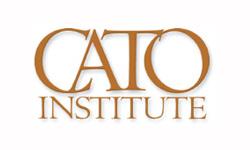 [K. William Watson, Cato Institute, Link (CC-BY-NC-SA)] The Court of Appeals for the Federal Circuit heard oral arguments today in a case about dental retainers that could threaten the free flow of information over the Internet. The question is whether the U.S. International Trade Commission has the authority to bar the “importation” of digital transmissions. The case has serious implication for the future of 3D printing, internet service providers’ liability for copyright piracy, and the internet’s global infrastructure.
[K. William Watson, Cato Institute, Link (CC-BY-NC-SA)] The Court of Appeals for the Federal Circuit heard oral arguments today in a case about dental retainers that could threaten the free flow of information over the Internet. The question is whether the U.S. International Trade Commission has the authority to bar the “importation” of digital transmissions. The case has serious implication for the future of 3D printing, internet service providers’ liability for copyright piracy, and the internet’s global infrastructure.
The ITC has the power to ban imports to prevent “unfair competition” and has become a popular venue to enforce U.S. patents. A Cato Policy Analysis from 2012 details how the ITC’s patent enforcement powers are unnecessary, protectionist, and inconsistent with U.S. trade obligations.
The case before the appeals court today involves products that are manufactured inside the United States based on schematics generated by a computer in Pakistan. The production of those schematics is covered by a patent owned by Align Technology, who successfully petitioned the ITC to issue an order barring its competitor ClearCorrect from transmitting the data from Pakistan to the United States.
An editorial in yesterday’s New York Times explained the dangers of allowing the agency to have power over digital transmissions:
The I.T.C. has long had the power to forbid companies from importing physical goods like electronics, books and mechanical equipment that violate the patents, copyrights and trademarks of American businesses. It does so by ordering customs officials to seize items at the border or by issuing cease and desist orders to importers. The commission’s order to ClearCorrect was the first time it had sought to bar the transfer of digital information. If the appeals court upholds this decision, it could set a precedent that would allow businesses to seek to block all kinds of data transmissions.
Of course businesses should be able to protect their patents and copyrights. But there are far better ways to do so. In this case, for example, Align could sue ClearCorrect and seek damages for patent infringement. Or the company could ask a judge to order ClearCorrect to stop selling products made using the information contained in the files.
It is not even clear that the commission has the authority to restrict international data transfers. Congress has given it authority to block the import of “articles,” which for decades has been understood to mean physical goods. In last year’s ruling, a five-member majority of the commission ruled that the word “article” includes data.
Groups like the Motion Picture Association of America and the Recording Industry Association of America are supporting the commission’s view. They argue that, as trade increasingly becomes digital, the definition of “article” should include data. The Internet Association, which represents companies like Facebook, Google and Twitter, is asking the court to reverse the decision.
We already know from leaked documents that the MPAA plans to use the ITC’s potential jurisdiction over data transmissions as a way to block Americans from accessing foreign websites that host copyrighted movies.
The purpose of the ITC’s patent enforcement power is to make sure that U.S. companies have a remedy against foreign infringers who are otherwise unreachable by a domestic court. That’s why the ITC’s remedy is a ban on future imports rather than money damages for past infringement like you would get in federal district court. But the bulk of the ITC’s caseload, including the Align case, involves disputes between parties that can and do sue each other in U.S. courts.
In today’s global economy, it’s particularly pointless to have a specialized IP court for imports, digital or otherwise. The fact that an article is imported from outside the United States or a piece of information travels through a foreign computer server has no bearing on whether that product infringes a U.S. patent or copyright.
Giving the ITC power to bar cross-border data transmissions invites mischievous litigation without serving any legitimate public policy goal.




